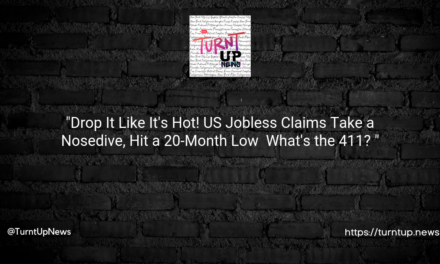🧪 Big Chem Pours Out a Cool $1.19 Billion to Quench PFAS-Related Fire 🔥
TL;DR:💰 Chemours Co, DuPont de Nemours Inc, and Corteva Inc are about to take a billion-dollar bath as they’ve agreed to foot the bill for contaminating U.S. public water systems with PFAS, those pesky toxic “forever chemicals”. Like, they’re called “forever” for a reason, am I right? So, how did we end up here and why is it costing them the GDP of a small country? Let’s spill the tea… or in this case, chemicals.
The tension has been as thick as the chemical cocktail in the water supply, with Chemours, DuPont, and Corteva facing a mountain of claims over PFAS contamination. For those not fluent in chemistry-ese, PFAS stands for per- and polyfluoroalkyl substances (try saying that three times fast), a group of man-made chemicals that’s been causing a stir for their persistence in the environment and potential health risks. They’re nicknamed “forever chemicals” because they just don’t go away, kinda like your ex’s texts.
They’ve been used in everything from non-stick pans to stain-resistant carpets to firefighting foam, but now it seems like they’re sticking around in our public water systems, too. Ugh, talk about being too clingy!
According to the cool cats at Reuters, this trio of chemical giants have reached an agreement to part with a whopping $1.19 billion to settle these PFAS-related claims. Notably, this doesn’t admit guilt, just says “we’ve got a problem here” in billion-dollar terms. But hey, can you put a price tag on clean water? 🤷♂️
This has all got us thinking: what does this mean for other chemical makers out there? Will we see a new trend of billion-dollar settlements? This could be the wakeup call the industry needed, but at what cost? And more importantly, are these companies actually going to make some changes, or is it just going to be another case of rinse and repeat?
This billion-dollar buyout is certainly raising some serious questions about corporate responsibility and environmental protection. But hey, this isn’t an advice column and we’re not handing out tips. This is just the tea, served as it is. ☕
As for you, the reader, what’s your take on this whole chemical conundrum? Do you think a billion bucks is a fair price for potentially messing up public water systems? Or is it a drop in the ocean? How do you feel about “forever chemicals” being the unwanted guest in our water systems?
Let’s chat! Because the only thing that should be in our water is H2O, right? 🚰🌎💧
Disclaimer: This article is for informational purposes only. It is not intended to provide legal or financial advice, and should not be relied upon for such. Any actions taken based on the information presented herein are at the reader’s own risk.





